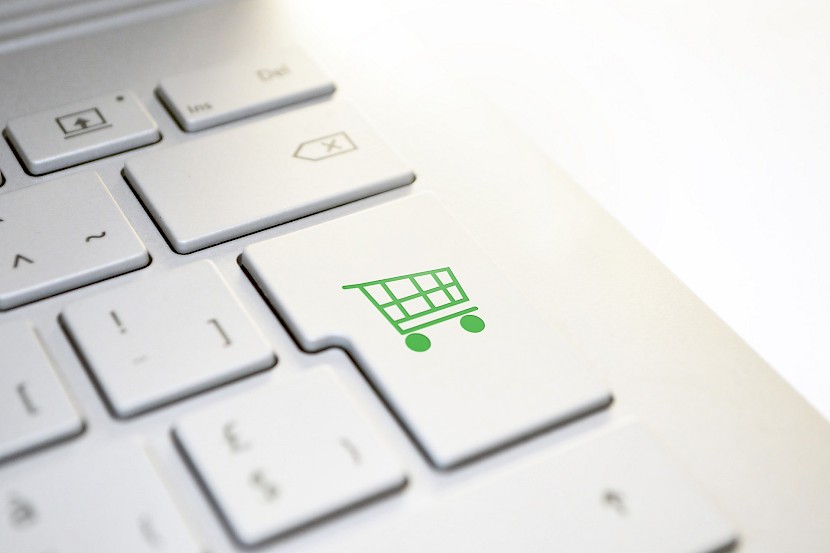
Tips to spot scammers on online platforms
Online platforms usually offer millions of offers from different sellers. With a pool of sellers of this size, however, there are unfortunately not only reputable providers, but also more and more fraudsters among them. Especially offers that seem too good to be true are often at work. SecondSol explains how you can protect yourself from such online scams.
Hints to help you spot scammers
A direct and first warning sign that should make you suspicious is the payment in advance. Although many honest and professional sellers also use this method of payment, it can also happen that less honest sellers ask you for an advance payment or the entire amount before delivery. After you have paid in advance, however, you will not receive the goods as a result of the scam. So that you do not fall for such offers, we will explain to you which abnormalities can indicate fraud:
- The item is significantly cheaper than similar items advertised on the platform.
- The item is available, although such new items are sold out everywhere.
- The seller did not provide a phone number.
- The seller is private.
- You, as the buyer, should pay in advance. Prepayment is common in photovoltaics, but you should be careful with sellers who have only recently been active and/or have no or very few ratings.
- A face-to-face meeting is avoided for a variety of reasons.
- The seller offers other high quality products that also seem too good to be true.
However, it is important to note that not every seller without a phone number or every offer with a prepayment automatically constitutes such a case of fraud. Given the number of criteria, you will probably see one of these points fulfilled by almost every private provider. It is therefore essential to listen to your own gut feeling! If the offer seems too tempting, especially in terms of price or availability (as mentioned above), your alarm bells should be ringing. Here you better refrain from making a purchase.
Recognize reputable providers
The most important thing when buying and selling products is communication. If sellers exclude personal contact, users should become suspicious. Contact should also always be made via the message function of the platform. Fraudsters often try to divert communication to other channels such as messenger apps or email.
A look at the user's profile doesn't hurt either. How long has the user been active on the online platform? For years or rather for days or a few weeks?
Be careful when paying
Personal collection of the goods on site is generally the best choice for both sides. In this way, the buyer can inspect the goods and only pay when the condition of the item appears to be as stated in the advertisement. In addition, the money is handed over personally. Tip: If you can get the seller to meet in person in public rather than at their home, play it safe too. But what to do if a meeting is generally not possible?
Here, buyers should ensure that they always choose a secure payment method and refrain from paying via Western Union, PaySafe, MoneyGram or cash in an envelope. Even transfers to an account are not without risk.
It is therefore always advisable to choose a secure payment method with buyer protection. In addition to Paypal, other payment providers also offer a system that works in a similar way. This feature offers some protection to both buyers and sellers. Even if it is usually free for sellers to use, since the buyer has to pay a fee depending on the agreed purchase price, buyer protection ensures that the buyer gets the money back if he does not receive the item from the seller or if the seller does not receive it differs from the description. The money is then usually only paid out to the seller when the buyer confirms receipt of the goods. In addition, your payment details remain private and do not have to be disclosed.
Sellers should also not accept such payments or checks, etc., since the latter in particular are easily forged or can be declared invalid afterwards.
Forged documents, ID cards & Co.
Fraudsters go to great lengths to make fake documents such as ID cards, purchase invoices, bank transfer receipts and even entire websites look real. As a buyer, you should therefore not be fooled by a professional appearance. A healthy degree of distrust is usually always appropriate here.
This is what you should do if you have been scammed
Have you fallen for a scam despite all your precautions? Immediately file a report with the responsible police station and present all information and all correspondence to them. SecondSol - and most other professional online platforms - ensure close cooperation with the authorities.
This is how you play it safe on online platforms
Try to stick to the following guide as best as you can:
- Get in touch with the seller – preferably by telephone or via the portal’s message function.
- Ask the seller for their contact details and address.
- Save the advertisement and the e-mail correspondence with the provider.
- Ask if you can see an invoice for the product.
- Agree on pay on collection or a secure, escrowed payment method – such as Paypal.
- Never pay by MoneyGram, Western Union or wire transfer, as it will be difficult to get back money already paid.


